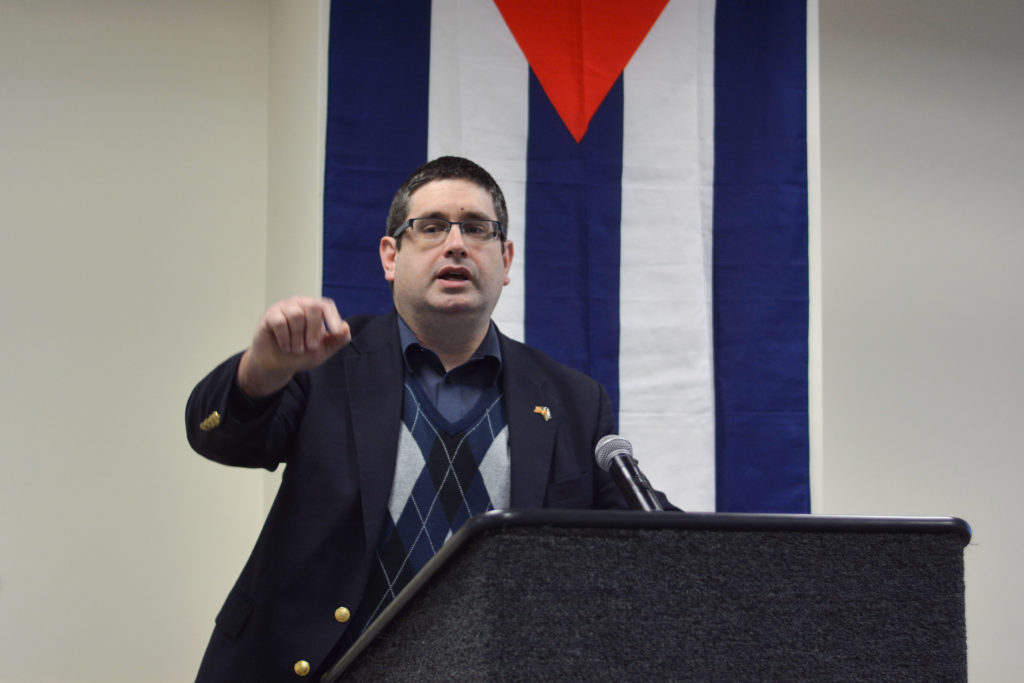A Cuban embassy official and an activist spoke about the relationship between Cuba and the United States at an event in the Marvin Center Saturday.
Miguel Fraga, the first secretary of the Cuban Embassy in the District, and Sean Blackmon, an organizer with the Stop Police Terror Project D.C. and the Act Now to Stop War and End Racism Coalition, spoke about Cuba’s politics, culture and socioeconomic status. The event, organized by the Internationalist Students’ Front at GW, was held to commemorate 60 years since the Cuban revolution.
Blackmon said despite efforts from the United States to “punish” Cuba for “carrying out a successful revolution,” the island nation has proven to the world that a small country can resist global powers and create a society “that isn’t predicated on the exploitation of the many for the benefit of the few.”
“Cuba has refused to bow its head or bend its knee to the seat of world imperialism and from the standpoint of the U.S. government, they can never be forgiven for their insolence,” Blackmon said.
The Cuban revolution came to a close on the first day of 1959, when Fidel Castro and his allies officially ousted the military dictatorship of Fulgencio Batista. The revolution hurt U.S.-Cuba ties as Castro nationalized properties occupied by U.S.-owned businesses, and the United States implemented a series of restrictions against the country and initiated covert operations to bring down the island’s communist regime.
While U.S. relations with the country have softened in recent years, American leaders have historically viewed Castro as a leader who sanctioned human rights abuses and chilled free expression.
Blackmon, who recently visited Cuba, said seeing the “beauty and tenacity of the Cuban people” made him feel “deeply frustrated” by the negative impact of the United States’ roughly 60-year embargo on the country.
Fraga, the first secretary of the Cuban Embassy in D.C., said misinformation about his country has often circulated in the Western hemisphere because of shows and movies like “I Love Lucy,” “Scarface” and “Designated Survivor.” He urged the audience to visit Cuba, citing numerous economic and health statistics showing the country’s positive outlook.
He said President Barack Obama and Cuban President Raul Castro’s pledge to improve U.S.-Cuba relations in December 2014 – and the subsequent development of diplomatic ties in 2015 – proved that Cuba is “willing to work with the United States.” President Donald Trump has since reimplemented some financial and trade restrictions on the country.
Fraga said the blockade of Cuba, a sticking point in U.S.-Cuba relations, has prevented the island from accessing global markets. He invoked the Golden Rule – “do unto others as they will do unto you” – in calling for the removal of the embargo.
“We mentioned what we want to see, the end of the blockade, to have Gitmo back, to talk all our differences but we have to be honest – that is not in the near future,” he said. “But we need to understand we need to work with respect.”





